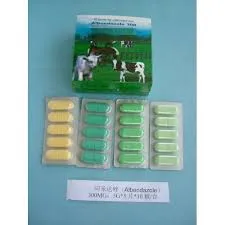- Afrikaans
- Albanian
- Amharic
- Arabic
- Armenian
- Azerbaijani
- Basque
- Belarusian
- Bengali
- Bosnian
- Bulgarian
- Catalan
- Cebuano
- Corsican
- Croatian
- Czech
- Danish
- Dutch
- English
- Esperanto
- Estonian
- Finnish
- French
- Frisian
- Galician
- Georgian
- German
- Greek
- Gujarati
- Haitian Creole
- hausa
- hawaiian
- Hebrew
- Hindi
- Miao
- Hungarian
- Icelandic
- igbo
- Indonesian
- irish
- Italian
- Japanese
- Javanese
- Kannada
- kazakh
- Khmer
- Rwandese
- Korean
- Kurdish
- Kyrgyz
- Lao
- Latin
- Latvian
- Lithuanian
- Luxembourgish
- Macedonian
- Malgashi
- Malay
- Malayalam
- Maltese
- Maori
- Marathi
- Mongolian
- Myanmar
- Nepali
- Norwegian
- Norwegian
- Occitan
- Pashto
- Persian
- Polish
- Portuguese
- Punjabi
- Romanian
- Russian
- Samoan
- Scottish Gaelic
- Serbian
- Sesotho
- Shona
- Sindhi
- Sinhala
- Slovak
- Slovenian
- Somali
- Spanish
- Sundanese
- Swahili
- Swedish
- Tagalog
- Tajik
- Tamil
- Tatar
- Telugu
- Thai
- Turkish
- Turkmen
- Ukrainian
- Urdu
- Uighur
- Uzbek
- Vietnamese
- Welsh
- Bantu
- Yiddish
- Yoruba
- Zulu
9 月 . 30, 2024 03:10 Back to list
Understanding Animal Diets and Their Impact on Health and Wellbeing
Animal Nutrition and Health A Comprehensive Overview
Animal nutrition and health are critical components of veterinary science, agriculture, and environmental sustainability. Understanding how diet influences the health and productivity of animals provides a foundational basis for improving livestock management and ensuring animal welfare. This article explores the essentials of animal nutrition, its impact on health, and sustainable practices that can enhance both animal welfare and production.
The Importance of Nutrition
Nutrition plays an integral role in the overall health of animals. It involves the intake of food that contains essential nutrients necessary for growth, reproduction, and maintenance. These nutrients include proteins, carbohydrates, fats, vitamins, and minerals. Different species have varied nutritional requirements depending on their biological needs, life stages, and production goals.
1. Macronutrients - Proteins are crucial for growth and tissue repair. They are made up of amino acids, some of which are essential and must be provided through diet. - Carbohydrates serve as the primary source of energy. Animals derive energy from starches, sugars, and fiber found in plant-based feeds. - Fats not only provide concentrated energy but also facilitate the absorption of fat-soluble vitamins (A, D, E, K).
2. Micronutrients - Vitamins and minerals perform various biochemical functions in the body. For example, calcium and phosphorus are vital for bone health, while vitamins such as B12 are crucial for metabolic processes.
The Link Between Nutrition and Health
Proper nutrition significantly impacts animal health
. A well-balanced diet helps- Boost Immunity Adequate nutrition supports the immune system, reducing susceptibility to diseases and infections. - Enhance Performance In livestock, improved nutrition can lead to increased milk production, faster weight gain, and better reproductive performance. - Prevent Nutritional Disorders Imbalances or deficiencies in the diet can lead to health issues such as obesity, metabolic disorders, and nutritional deficiencies. For instance, calcium deficiency in dairy cows can lead to milk fever, a serious metabolic disorder postpartum. Nutritional Strategies for Optimal Health
To achieve optimal health through nutrition, it is crucial to adopt strategies that consider the specific needs of different species and production systems. Here are some effective approaches
animal nutrition and health

1. Formulation of Balanced Diets This involves creating rations that meet the energy, protein, vitamin, and mineral requirements of the specific animal species. Utilizing feed formulations based on scientific research ensures that the nutritional needs are met.
2. Utilization of Quality Feed Ingredients High-quality feed ingredients should be chosen, as they can provide better nutrient density and digestibility. Local sourcing and seasonal feeding can also enhance the nutritional quality of the diet.
3. Incorporating By-Products The use of agricultural by-products can contribute to a more sustainable feeding approach while reducing feed costs. For example, using spent grains from breweries or soybean hulls can add valuable nutrients to the diet while minimizing waste.
4. Regular Monitoring and Adjustments Continuous evaluation of animal performance and health allows for necessary adjustments to the diet. This may include regular weight checks, health assessments, and nutritional analysis of feeds.
Sustainable Practices in Animal Nutrition
Sustainability in animal nutrition involves practices that minimize environmental impact while ensuring the health and productivity of livestock. This can be achieved through
- Precision Feeding This practice involves using technology to provide individualized diets based on the specific needs of each animal, reducing excess feed waste and improving efficiency. - Alternative Protein Sources The exploration of alternative protein sources, such as insect meal or algae, can help reduce the environmental footprint of animal production while providing required nutrients. - Integrated Systems Utilizing agroecological approaches such as crop-livestock integration can enhance nutrient recycling and provide a balanced diet for livestock while improving soil health.
Conclusion
In conclusion, animal nutrition is a cornerstone of health and productivity in livestock. By understanding the significance of nutritional balance, implementing effective feeding strategies, and adopting sustainable practices, we can enhance the well-being of animals while addressing the challenges of modern agriculture. The interplay between nutrition and health not only influences individual animals but also impacts food security and environmental sustainability, making it essential for farmers, veterinarians, and nutritionists to collaborate in creating a more sustainable future for animal agriculture.
-
The Power of Radix Isatidis Extract for Your Health and Wellness
NewsOct.29,2024
-
Neomycin Sulfate Soluble Powder: A Versatile Solution for Pet Health
NewsOct.29,2024
-
Lincomycin Hydrochloride Soluble Powder – The Essential Solution
NewsOct.29,2024
-
Garamycin Gentamicin Sulfate for Effective Infection Control
NewsOct.29,2024
-
Doxycycline Hyclate Soluble Powder: Your Antibiotic Needs
NewsOct.29,2024
-
Tilmicosin Premix: The Ultimate Solution for Poultry Health
NewsOct.29,2024













